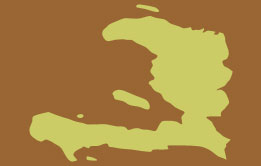Haiti’s climate of widespread poverty and political instability pervades the practice of journalism, as well. Amidst prevailing illiteracy, print media has limited impact, making hundreds of small radio stations the country’s primary independent media. Journalists can be critical of the government, but true investigative reporting is rare, and self-censorship is common, due to both the financial and security concerns of journalists. Radio stations may censor content to avoid loss of limited advertising funds, and many journalists are susceptible to bribery. Moreover, while laws in Haiti exist to protect free speech, practicing journalists experience a far different reality. They are frequently harassed or attacked by pro-government supporters, militia, or criminals. The government rarely enforces laws protecting the press, nor responds effectively when violence is reported, and murders of prominent journalists in 2000 and 2001 have yet to be prosecuted. These factors contribute to an atmosphere of lawlessness that drives many in the media from the country or into hiding.
The conditions for working journalists have declined even further in recent years, as antigovernment protests, the murder of a prominent gang leader in late 2003, and, soon after, the ouster of President Jean-Bertrand Aristide in early 2004, have all led to political and gang violence. Press advocacy groups have noted a range of harassment and violence against both Haitian and foreign journalists, including death threats, arson, and attacks with stones, machetes, and gunfire targeting journalists in Cap Haitien, Port-au-Prince, and other cities experiencing unrest.



